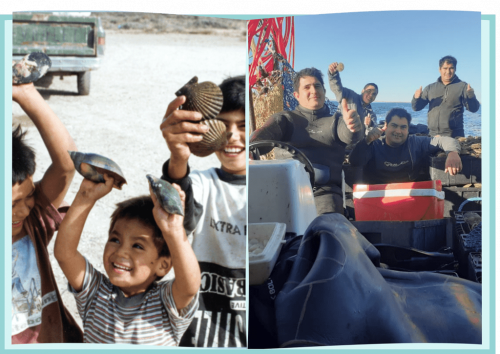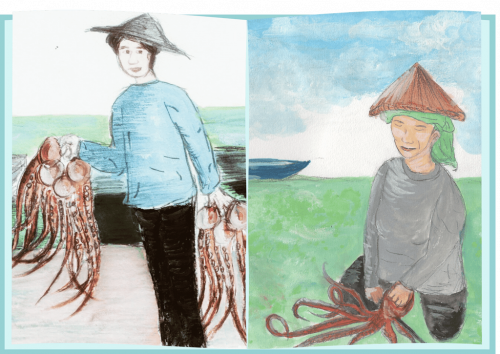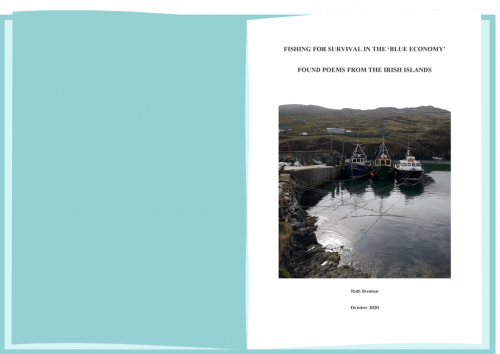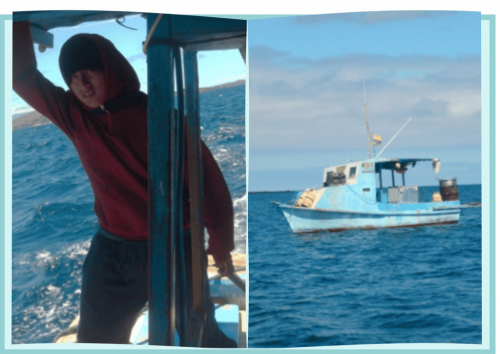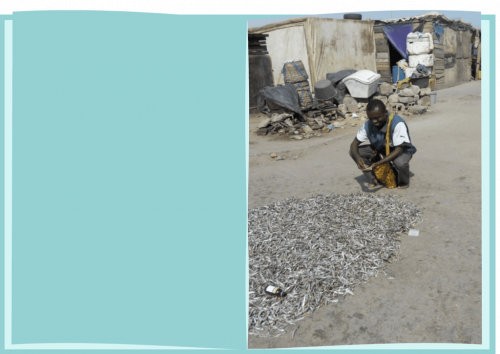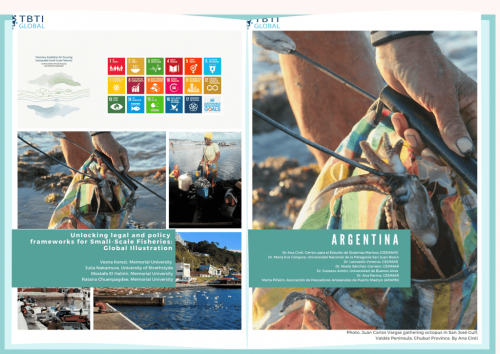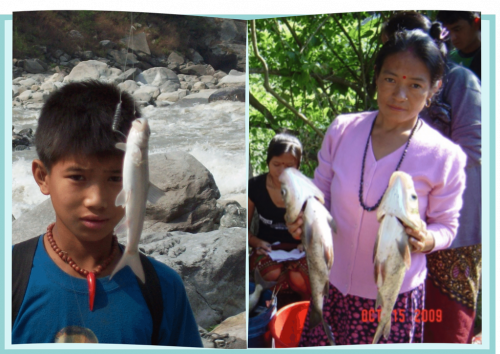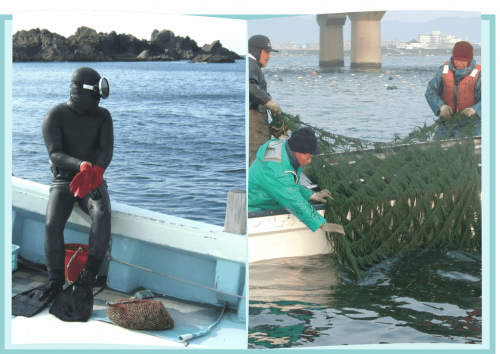A story by Javier Signorelli, Argentina
Happy World Fisheries Day 2020
Each November 21, World Fisheries Day, is a welcomed opportunity to reflect on the ever-increasing knowledge about fishing, fishers, coastal communities, and the status of the oceans and the fish stocks, as well as to recognize the contribution of fishing people who provide food, nutrition and income security to millions of people around the world.
For this year World Fisheries Day, we have decided to call attention to the importance of small-scale fisheries. In preparation for the November 21, we have asked the SSF community to share stories about why they matter to them. As so many times before, you responded in a most inspiring and generous way!
We received 22 stories, that come in various creative formats, including essays, photo narratives, poetry collection, videos, animation, and drawings. We are pleased to share with you this thoughtful, poignant, and inspiring collection of stories that portray the myriad of values small-scale fisheries embody.
These stories depict the reality of SSF: some stories will make you laugh, some will pull on your heartstrings, while others are meant to help us reflect and ponder. Ultimately, they are all meant as an inspiration to keep striving forward towards building a better future for small-scale fisheries.
SSF are personal
While Some Days Were Difficult, Others Were Beautiful
When Javier was born, he was taken to Larralde Beach, where his parents Juan and Cándida lived with his sisters and brothers, all 10 of them, all dedicated to fishing and housework. Little by little he started learning what fishing was about and what it meant. When he started going out on the boat with his father, he realized that the work he and his brothers, divers and sailors, were doing was not easy. One was constantly cold and wet when caught by storms and winds. But while some days were difficult, others were beautiful.
More to Sea: Portraits of Europe’s Small- Scale Fishers
An e-book by Mariëlle Klein Lankhorst, The Netherlands
In 2018, Mariëlle travelled for twelve months through Europe to interview small-scale fishers. She wondered how they were doing. The stories she collected were as diverse as the people she met. Still, she noticed several common issues such as the topic of what is happening with fishers in Europe, how they are impacted by EU legislation, and changes in markets and marine environments. Mariëlle’s photo book, tries to incorporate different aspects of fishing lives as it illustrates answers to the question of “What keeps you up at night?” The e-book will be published next month as part of the TBTI Global publication series.
Through Their Eyes: Fishing Communities Voice Their Stories Through Photos
A photovoice collection by Emi Koch, Peru & Fiona Simmance, Malaysia
From the coast of Peru to the shores of Lake Chilwa in Malawi to fresh produce markets in Vietnam, small-scale fisheries provide vital income, food, nutrition and a sense of identity. Here we share photos and voices of fishing community members from across the globe that were gathered through the photovoice research method – a powerful tool that empowers people to visually document and honour their knowledge and experiences about issues that affect their lives.
Small-Scale Octopus Fisheries in Wakatobi, Indonesia
Drawings by Indah Rufiati, Indonesia
Small-scale octopus fishers in Darawa, Wakatobi, Southeast Sulawesi, Indonesia catch octopus using selective fishing gear spear. Female fishers glean during low tide while male fishers use diving methods to catch octopus. Since 2017, Darawa fishing communities have been conducting participatory octopus fisheries monitoring and use the data as the basis of community-based fisheries management in their area.
Fishing for Survival in the ‘Blue Economy’: Found Poems from the Irish Islands
Poetry collection by Ruth Brennan, Ireland
A collection of ‘found poems’ created from interviews with islanders, policymakers and fishing industry representatives to better understand the challenges faced by small-scale island fishing communities in the governance of Irish island fisheries, during the course of participatory research carried out between 2018 and 2020.
The Artisanal Fishing of Galapagos, my Motivation for Life
A story by Wilson Rivadeneira, Ecuador
Wilson feels very lucky to have grown up in Galapagos and even more so, that his family is dedicated to artisanal fishing. Fishing is the first job he learned from his father and thanks to him, he has been able to visit many places and experience incredible adventures; at the same time, it allowed him to understand the importance of marine resources for his community. For Wilson, fishing represents a lifestyle in which the most important thing is to be well fed and have comfortable clothes. Although it is an activity that requires a lot of effort, it offers fun and interesting experiences.
Langebaan and the Small-Scale Fishing Sector: A Personal Reflection
A story by Eric Holliday, New Zealand
Psychologists tell us that what happens in our childhood has a lasting impact on your life in adulthood. In the case of Eric Holliday, growing up in South Africa, and learning to love the sea and all things marine and fishing related, it has certainly proved true. It shaped his career and installed a deep and longlasting appreciation for the small-scale fisheries sector.
Son Teaching Mom How To Fish
A drawing by Salvador Rodriguez-Van Dyck, Mexico
Knowledge and passion can be contagious and sometimes its’ not the old generation teaching the younger one but the other way around. Salvador is an oceanographer with over 12 years of experience promoting co-management among Mexican fishing communities. He’s trying to get back into painting.
The meanings of SSF
Managing for Diversity: Keeping Everyone Afloat in Irish Fisheries
An animation by Ruth Brennan, Ireland
A short animation based on research carried out between 2018 and 2020 into the challenges faced by small-scale island fishing communities. The animation tells the story of how access to Irish fisheries, a public resource, needs to take account of the diversity of contexts within the Irish fishing industry, to ensure equitable access that keeps everyone afloat.
Small-Scale Fisheries of the Eastern Mediterranean: a Source of Life Accompanied with Knowledge Gaps
An essay by iSea, Greece
“iSea” is an NGO based in Greece that works closely with the SSF community, aiming to increase their sustainability and influence co-management of the resources. They believe that the best way to reach the goals of sustainability and management is through establishing a mutually beneficial relationship between fishers and the state. Together with fishers, they work towards increasing their capacity and, consequently, securing their livelihood while transforming them into guardians of the Mediterranean.
The Pride of Being a Fishingwoman
Story by Mayri Espadas, Mexico
Mayri is a chairwomen of fishing cooperative “U-Meya Coolelo” in Chuburna Puerto, Yucatan Peninsula, Mexico. The cooperative is a collective of 15 members and their name “U-Meya Coolelo” comes from Mayan, meaning “woman working”. Their history dates backs 20 years ago, when they were an informal working group, until one day the authorities came to the community to work with men, on issue such as sustainable management of fishing resources. At that moment, the women approached authorities looking for support and decided to organize themselves formally as a cooperative. Today, they are dedicated to gathering, processing and local commercialization of chivitas.
A Sea Full of Life: Visions from the Azores
A photo narrative book by Alison L. Neilson, Portugal
This photo-stories collection highlights the people whose love of the ocean brings sustainable food to our tables. Through these stories of people who live with the consequences of declining fish populations, reduced quota for how much fish they are allowed to catch as well as the other types of regulations on fishing, the reader will learn about the economic and political realities of small-scale fisheries. But despite being threatened, they are very much alive and kicking.
Dry Anchovies on a Concrete Floor
Short story by Isaacs Nyameke, Ghana
Ghana is one of the traditional small-scale marine fishing countries along the coast of West Africa. The favourable upwelling makes anchovies’ catches very abundant and the harvested anchovy are either sun dried or smoked and sold at the market for food consumption. With the current climate change, any negative impact on small-scale fisheries will have a big effect on livelihood and community setting of the fishing communities of Ghana.
Why Small-Scale Fisheries Matter! The Bangladesh Story
Story by MD Shahadat Hossain, Bangladesh
Fish are inextricably connected with the Bengali culture. The contribution of SSF in increasing food supply, job creation, rising nutritional status, and earning foreign exchange have been developed in the last few decades. Most of the fishers in Bangladesh engage with small-scale fisheries. By promoting SSF in Bangladesh, huge change can be done to the livelihood of the coastal people of Bangladesh.
A Glimpse of Marine Small-Scale Fisheries in Bangladesh
A video by Eurida Liyana and Emrul Hasan, Bangladesh
This video is a brief depiction of why SSF matters to the economy, and to the lives and livelihoods of the coastal peoples of Bangladesh. The video focuses on the marine SSF, which although they account for only about 34% of the total SSF production, contribute to almost one-third of the total contribution to GDP from the fisheries sector.
The future of SSF
Unlocking Legal and Policy Frameworks for Small-Scale Fisheries: Global Illustrations
New TBTI e-book by Vesna Kerezi, Julia Nakamura, Mostafa El Halimi & Ratana Chuenpagdee (Eds)
To date, only a handful of countries had necessary conditions to take action to implement the SSF Guidelines. The purpose of this book is to encourage countries to take the required steps in appraising the extent to which the current fisheries legislation and policies are applicable for SSF governance. Such step can begin with an evaluation of relevant legal and policy instruments against the principles and recommendations of the SSF Guidelines, as shown in this book through the 15 country-based assessments. It is an instrument that can help determine what needs to be done to facilitate and ensure the SSF Guidelines implementation for sustainable SSF.
Why Small-Scale Fisheries Matter
Story by Linda Behnken, USA
Our world is at a tipping point. We tip away from environmental bankruptcy only if we listen to an older and more tested wisdom. Native cultures offer that deeper wisdom, as do the small-scale fishermen whose lives have been regulated by wind, tide, and current. Perhaps the ultimate value of small-scale fisheries and fishermen is their ability to lead us back to a sustainable relationship with the ocean and planet that sustain us.
Small-Scale Fishers Exist on the Margin amid COVID-19
Story by By Iftekhar Ahmed Fagun, Bangladesh
Small-scale fisheries play a crucial role for global food and livelihood security. In a developing country such as Bangladesh, they are immensely important. Short-term responses to the pandemic must be rapid and aimed to the most vulnerable group of small-scale fisher. In the long term, there is a need to formulate a coordinated response and support network to recuperate the condition of the food system and resilience of the small-scale fisheries sector.
SSF Hub: Strengthening Small-Scale Fisheries through Partnership and Community
An interactive SSF platform developed by SSF Hub community
The purpose of the SSF Hub is to create one space where users can exchange information, ideas, and stories with other people and organizations working in small-scale fisheries. It is meant to be a growing community: providing access to the many experiences, initiatives and tools to support sustainable small-scale fisheries.
Marine Conservation Activities for Small-Scale Fisheries in Tairo Bay Community, Guadalcanal, Solomon Islands
Story by Tiaro Marine Conservation Committee, Solomon Islands
Since 2017, Tiaro Bay community has been working towards developing Community-based Resource Management for their community. The community established “Tiaro Marine Conservation Committee” as a community association to strengthen conservation activities for marine resources in/around the bay areas. They are driven by the consideration of how to preserve and maintain their precious marine resources for the present and the future of the community.
Breaking Paradigms: Innovative, Connected and Scalable Solutions for Small-Scale Fisheries
Story by COBI, Mexico
We know that there is no simple recipe for meeting fisheries, environmental, social, and management challenges. However, collective action, a clear and shared vision, defined roles and responsibilities, inclusion of current and future generations of fishers (women and men) foster the design, implementation, and documentation of solutions to achieve resilient communities and healthy oceans.
Small-Scale Fisheries in the Cradle of Himalayas Nepal: Why Small-Scale Fisheries Matter?
Story by Tek Gurung, Nepal
The main features of small-scale fisheries in Nepal, the most centrally located country of the Himalayas, are their “littleness, bountifulness, benevolence and charitableness…” They are important for food, nutrition, and livelihoods of marginalized ethnic communities, especially women. The small-scale fisheries products are not only the sources of nutrition and food to the marginalized ethnic groups, but are the most acceptable food sources to all Nepalese.
Small-Scale-Fisheries in Tokushima Prefecture, Japan
Short story by Yukio Ueta & Keisuke Mori, Japan
The coasts are home to many small-scale, often family-run fisheries, which do not come anywhere close to being acknowledged in a manner similar to their large scale, industrial counterparts (In the Era of Change: Essays About Japanese Small-Scale Fisheries, p11)”. The goal of this series is to raise the profile of the Japanese SSF and to emphasize their importance in establishing sustainable SSF around the world. This time is about the SSF in Tokushima Prefecture, located on the island of Shikoku in Japan. Stay tuned for more upcoming stories from TBTI Japan!


